Following the announcement that schools would be closing for the foreseeable future, pupils and parents face uncertain times ahead. We share tips and resources to help you keep your kids learning from home
It’s hard to deny: we’re living in uncertain times. With advice surrounding the coronavirus 19 (COVID-19) pandemic seemingly changing from day-to-day, many parents were split when it was announced that schools across the UK would be closing their doors to all but the most vulnerable of pupils and children of key workers following Friday 20th March.
While some parents welcomed the increase in safety measures that would allow their whole families to practice social distancing or social isolation, others raised concerns at the disruption it would cause for those who had no backup childcare options, or would be unable to continue working whilst caring for their kids.
No matter what your situation, if your child is not one of the 10% expected to remain in an ‘education setting’ over the coming weeks, there are still things you, your children or teens can do whilst schools are closed to help continue their education, learn new skills, and help stop cabin fever from setting in.
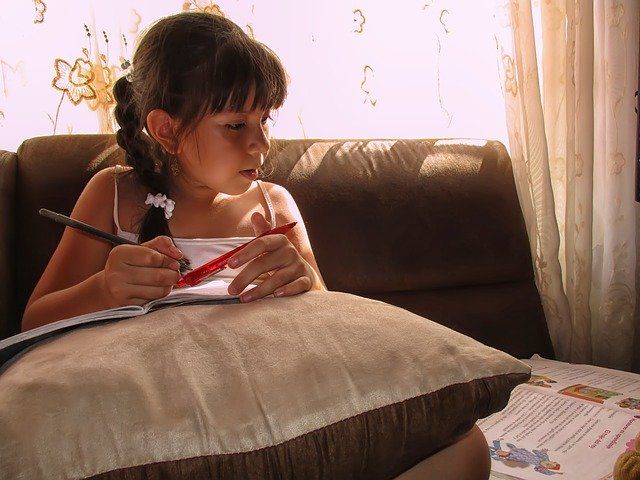
Home-learning tips and advice
The Montessori Group, one of the largest global education movements based on the scientific observations of how children learn, has shared practical tips and advice for parents who have not previously had to homeschool their children. Their unique, child-focused approach focuses on encouraging freedom, creativity, and self-directed activities to help children learn and grow at their own pace.
“This is undoubtedly a concerning time for many parents dealing with the very real impact of school and nursery closures. We want to support parents by setting out some ideas of how parents can help their children continue learning while at home.” Leonor Stjepic, CEO of Montessori Group commented.
“A child learns best through experiences during their early years – and there are many experiences that are readily accessible in the home. Whether it’s breaking away from a reliance on digital entertainment, organising the home to encourage spontaneous learning, or uncovering soft skills, I’m positive there’s something that every parent can gain from Montessori over the coming weeks.”
If you are worried about how you can create a learning environment at home without disrupting the balance between work, life, and learning, these tips could help you get started.
Set up a home-school area
Just as many of us are having to learn how to work from home productively – and harmoniously with our partners during self-isolation – we also need to begin setting up a space our kids or teens can use as their own to learn.
For younger children, consider: will they have the space to move, explore, and choose what they want to do? Is everything they will need easy to get to or within reach, or will they need to be moved and organised to make getting to things less disruptive?
“Often a small change can make a big difference to how children use a space. Think about what you want them to get out of the space, and make adjustments accordingly.”
For older children and teens, if you have the space, giving them a quiet spot for their laptop, textbooks, and any notes can help them to feel like they have their own, dedicated learning space where they can focus.
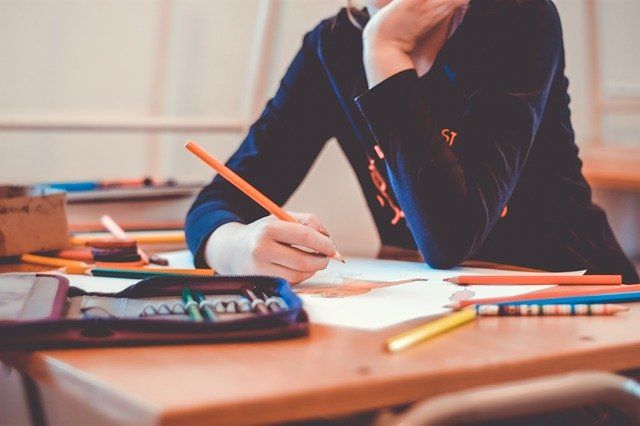
Create a daily routine
Having a routine isn’t just great for increasing productivity and reducing bad habits – it can also have significant benefits for our mental health and wellbeing. Breaking away from regular school or college routines can be disruptive, confusing, and even upsetting for some children; by creating structure in their day, you can help them to avoid the monotony that can come from being stuck at home, and instead turn their day into chunks of time to learn, play, relax, and look after themselves.
“Setting out a structure for the day is important when homeschooling. Your child may find it difficult to adjust from the normality of the school day, and the lack of peer support to keep them engaged and motivated.”
By helping them to set up their own routine, this can give them a sense of control and motivation.
“Help them to set up their own routine that works for them - this may be working in periods of time, or at a particular time of the day when they feel most receptive. Ensure the day is broken up into manageable activities and scattered with lots of breaks for unstructured learning and downtime.”
Leave time for play
While helping children to continue learning from home is important, so too is it important to ensure that they still have the time and space for creativity and unstructured play. Play is an essential part of growing up, giving children the chance to develop socially, emotionally, intellectually, and physically.
If you have the space, consider creating a dedicated play area. “For younger children, rather than having a toy box, organise a special area just for them. It could be a corner of a room with a rug that they play on, or low shelves where they can access toys and put them back neatly.”
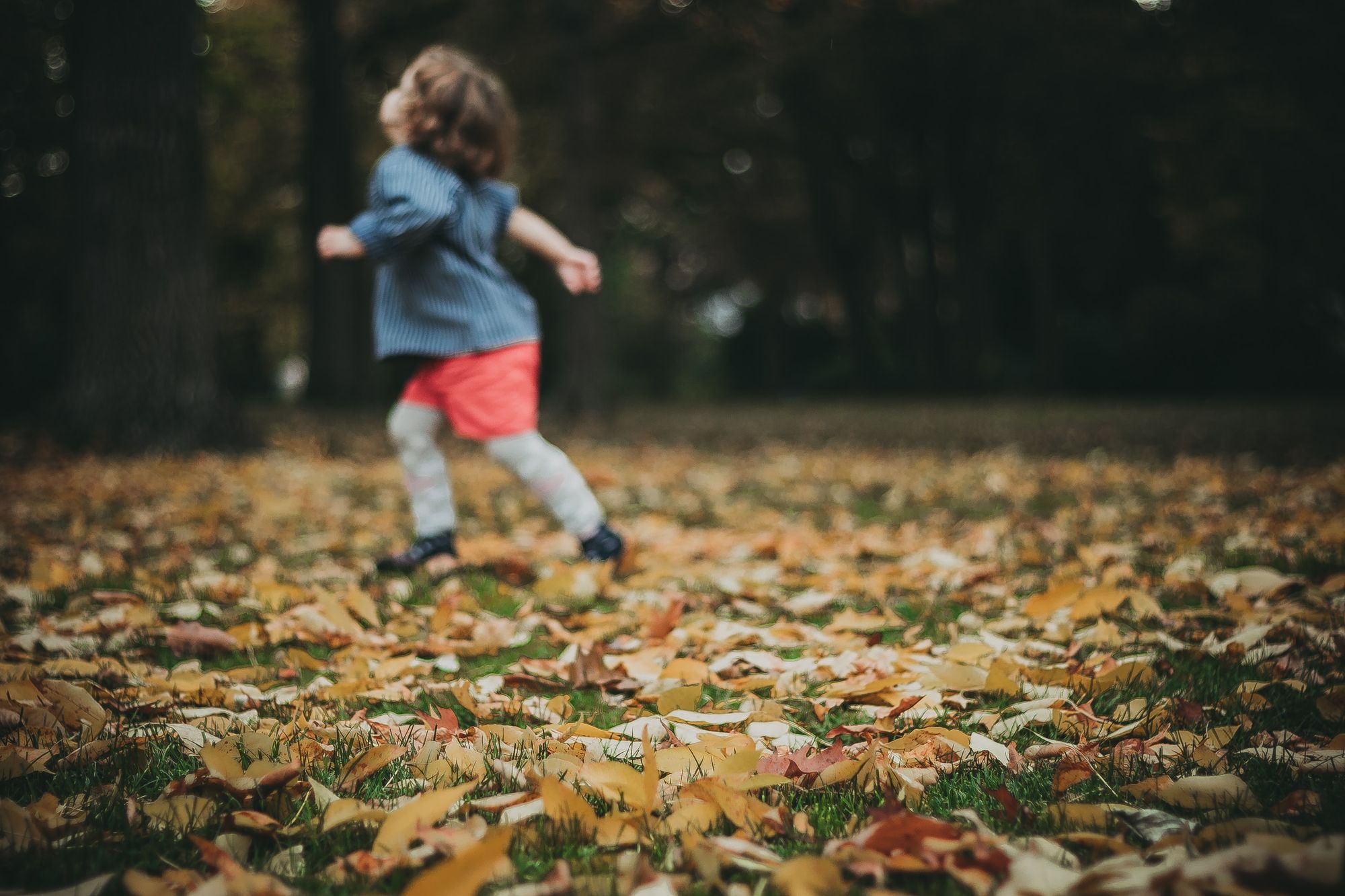
Home learning resources for tots to teens
Check out the latest government advice
The official gov.uk site has information about educating your child at home, with links to learn more about the national curriculum, guidelines for elective home education, as well as links to your local county site which has further resources, support groups, and more. While at the time of writing, the official government site did not have any specific advice for home schooling during the pandemic, it still had some handy links to help you get started.
Try online learning platforms (for free or cheap)
An online platform with over 525,000 teacher-created resources and new content added each day, Twinkl is designed to help those who teach.
As well as offering interactive resources including games, videos, and audio for early years learning through to KS4, as well as offering Special Educational Needs and Disability (SEND) specific resources, Twinkl has created a parents hub along with advice, homework help, Twinkl Kids TV, and a parents guide to Twinkl.
During the Coronavirus school shutdown, Twinkl has not only created home learning and school closure pacts, but has also taken the step to make these completely free. Hoping to help make this time teaching kids at home as stress-free as possible, the site offers not only help with subjects frequently taught on the curriculum, but also with health, wellbeing, and creating home routines. There’s even advice and guidance for practicing self-care during these stressful times.
We’re supporting global schools who have been forced to close with a free month on our ultimate subscription.
— Twinkl Resources (@twinklresources) March 14, 2020
Check below for your local code and enter it at https://t.co/4y0reLcp9s - then you’re good to go! Please retweet!#edutwitter #schoolclosures #onlinelearning #SLTchat pic.twitter.com/bMF6fLL7sR
There are many other sites available, offering help and support for children of all ages. While exams may have been cancelled or delayed for now, revision-based sites like S-cool and Save My Exams can be particularly helpful for supporting teens in continuing their learning from home.
Explore YouTube’s educational side
YouTube’s content creators offer thousands of free educational videos you can use to help support and expand on home learning. From walking you through hands-on, fun science experiments you can try at home, to giving guided meditation and mindful breathing advice, there are channels - and videos - for everything. Best of all? They’re all completely free.
Unlike with other learning platforms where content is often created by teachers, it is worth first taking a look at the videos you plan to share with your kids, just to make sure that the materials being covered are accurate, up to date, and age appropriate. While this isn’t usually a problem, it can be better to be safe than sorry.
Some big name channels to check out include:
-
Great for science – Crash Course: with over 10,500,000 subscribers and 1.2 billion views, Crash Course and their kids-specific channel, Crash Course Kids offer playlists for teens including physics, philosophy, world history, and psychology, while younger children and teens can check out all things science-based.
-
Great for maths – Khan Academy: with nearly 5,500,000 subscribers and over 1.6 billion views, the Khan Academy offers videos on a wide range of topics including maths, chemistry, grammar, arts and humanities. Designed for teens, new videos typically go up every couple of days. For younger learners, the Math Antics channel helps simplify and introduce different maths topics.
-
Great for making learning fun – ELF Kids Videos: combining learning with entertainment for younger children, these cute videos from ELF Kids help kids with the alphabet, phonics, and reading.
-
Great for history – A Kid Explains History: presented by 11-year-old Mr Q, A Kid Explains History combines humour and graphics to help kids learn more about history from around the world. Children may find it particularly inspiring to be learning from someone their own age.
-
Great for art – Art for Kids Hub: providing simple how-to-draw tutorials to help boost kids confidence in their own artistic skills, the Art for Kids Hub uploads new art lessons each weekday.
Whether you’re new to the educational side of YouTube, or use it regularly, it’s also worth keeping an eye out for new channels as more and more parents and educators take to the platform to help support and inspire each other. Channels like Homeschool Help offer daily educational videos to help parents who are teaching their kids from home while schools are closed.
Try resources to decrease stress and anxiety
Together with Counselling Directory, we’ve put together a series of free resources to help you help kids tackle stress and anxiety. From simple comics to hands-on activities and supportive articles, these can be downloaded, absolutely free.
- Make your own stress-busting fortune teller
- Colour and create your own worry tree
- Take a breather with mindful colouring bookmarks
For more information, helpful articles and resources, use the ‘Happiful Kids’ tag to find out more about how you can help kids…
- manage anxious thoughts and deal with anxiety
- balance learning, play, and screen time
- encourage kids to embrace their passions
- talk to children about mental health
- build self-esteem
- practice self-care
- deal with stress
- avoid meltdowns
Take advice from other parents
With schools now closed, many of us are faced with the choice of figuring out how we can support our child’s education at home, or worrying that they may fall behind. Now’s the perfect time to tap into the free recommendations and personal experiences homeschooling families share through their own blogs, websites, and online forums.
Sites like Freddies Mummy UK shares free and cheap home education resources specifically designed for UK learners, while A Cornish Mum shares some of the most helpful UK-based homeschool blogs she’s found.
Explore Pinterest
Pinterest isn’t just for moodboards and planning out your next big home improvement project – it’s packed full of links and free resources to help kids learn from home. Unlike other specific home educating blogs and websites, it can take some trial and error with which search term you use, as well as sifting through the results - but there are a lot of typically free resources on there to make the most of. Just search for ‘homeschooling’ to get started.
Try Instagram
Thanks to IGTV, more and more people are starting to share tips, advice, and activity ideas on how you can make learning fun outside of the classroom. Accounts to keep an eye on include Grid School amd WTFunFacts.
For older teens and more mature learners, the National Geographic channel’s insta feed offers a glimpse parts of the world many of us have never seen before. MarsCuriosity shows unofficial, un-retouched images from the Mars Science Laboratory. Or for budding history buffs, History Photographed shared photography from across the decades that give us a glimpse into history as we rarely see it.
Join Facebook Groups and follow pages
Facebook is home to a wide range of private and public groups dedicated to all things homeschooling and education-based. From free resources to providing a safe space to vent, explore and see what pages and groups you can find.
Established pages like Homeschool Creations have tens of thousands of followers and upload new, free resources regularly. Private groups may ask a few questions before you gain access, but many offer great advice, support, and resources in a community setting.
Read up about your local library
While going out and picking out new reading materials from your local library would defeat the point of keeping kids out of busy schools, some libraries offer postal loans services. Check out your nearest library’s official website to find out if this is something that they offer.
If you’re looking for more books to help your kids stay engaged and entertained but want to avoid spending money, sites like Free Children Stories have free books for kids aged three to 10. Oxford Owl, an award-winning site from Oxford University Press, allows access to free Oxford ebooks once you register (again, for free!) as well as games and guides to help children aged three to 11 develop their reading skills.
If you are considering ordering a few books for kids to enjoy at home, we’ve recommended some of the top books to inspire busy young minds, great books to help kids feel more empowered, as well as must-reads for anxious kids.
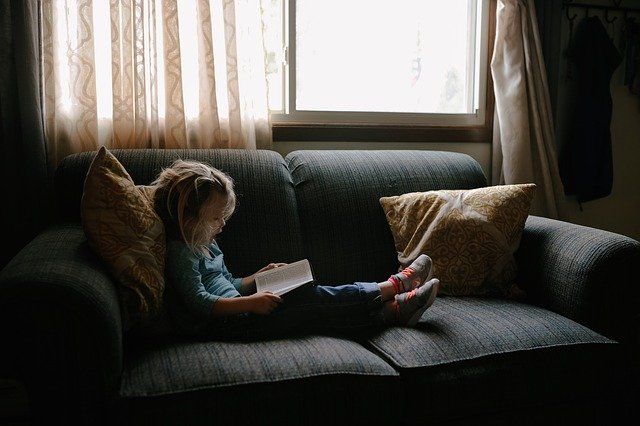
Get ‘appy
If you’re looking for educational apps that can both engage and teach children and teens something new, there are plenty of free and cheap options out there. Check out these recommendations from the eLearning Industry, or try the suggestions for teens from Learning LiftOff
Consider a virtual field trip
Staying safe inside doesn't mean you have to be stuck inside. Top museums and art galleries from around the world are offering free virtual tours from the comfort of your own home.
See some of the most famous works from artists across the ages. Take a tour of LA's J Paul Getty Museum to see Van Gogh's Irises and Renoir's La Promenade. Check out the Vatican Museums in Rome and see stunning 360-degree images of the Sistine Chapel and Vatican City. Or take an interactive tour of London's own Natural History Museum, British Museum, and National Gallery.
If you're looking for something a bit more entertainment-focused, there are a whole host of London's top West End shows that you can now see online. Showing theatre, ballet, and opera performances suitable for both adult and child audiences are on offer. Some performances do cost money to view, whilst others just offer the option to donate and otherwise watch free of charge. To find out more, check out this great article from Forbes.
You can also watch Royal Opera House ballet and opera performances for free during the outbreak. For the most up-to-date programme of free online content, visit the Royal Opera House website.
It's worth noting: the National Trust are no longer offering free entry to their parks and properties, due to too many visitors visiting during the opening weekend this was offered. If you had planned to take walk, consider keeping it more local and remember: it's still important to keep two metres distance from others at all times.
Host your own P.E class
Helping kids to burn off energy and keeping the whole family healthy and moving during these trying times is important. If you aren't sure where to start, check out The Body Coach TV. Joe Wicks, best known for his books on transforming how we eat and stay fit, has launched daily 'P.E With Joe' videos on his YouTube channel, The Body Coach TV.
With nearly 3 million viewers switching on to watch episode one within the first 24 hours, each episode offers 30 minutes of guided physical activity the whole family can follow along with.
It’s important to continue to look after your own mental health and wellbeing. Find out more about how you can support your mental wellbeing while homeschooling, or discover how you can make self-care a priority.

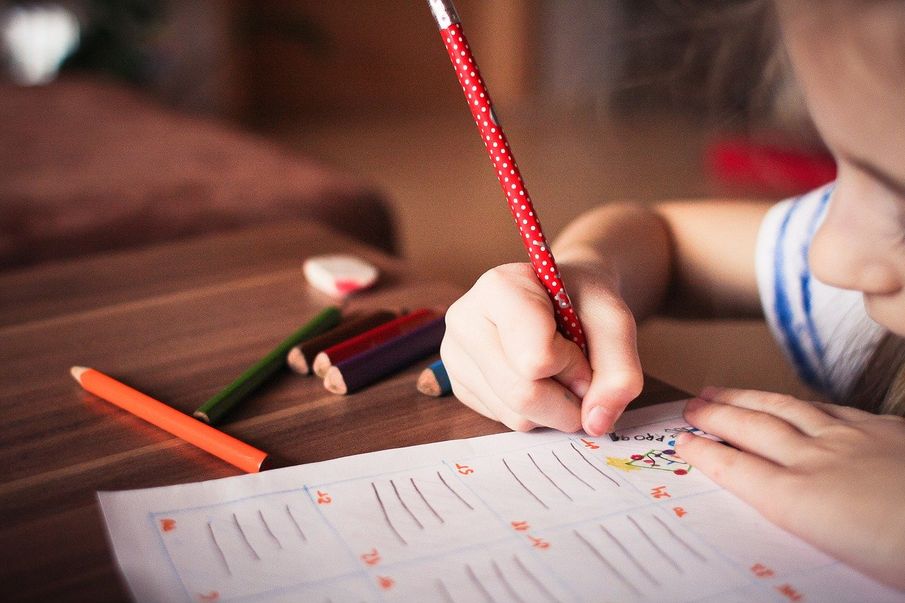
Comments